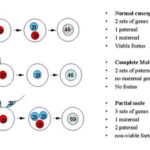
It’s common knowledge that pregnant women and those trying to conceive should limit their consumption of caffeine. And though there’s still no consensus on just how much caffeine is safe during pregnancy, there’s general agreement that it’s better to limit the daily consumption to less than 200 mg per day. In this blog post on Pregnancy Boss, we will explore the question “Should I Avoid Caffeine In Pregnancy?” and provide information to help you make an informed decision.
Related: Is Rooibos Tea Safe During Pregnancy?
What is Caffeine?
Caffeine is a stimulant found in many popular beverages such as coffee, tea, and soda. It is a natural compound that affects the central nervous system and stimulates the brain. Caffeine is also present in some foods such as chocolate and is commonly used as an ingredient in over-the-counter medications such as pain relievers and cold remedies.
Caffeine In Pregnancy
Too much caffeine in pregnancy increases your blood pressure and heart rate, both of which are not recommended when you’re pregnant. It also increases the frequency of urination, which can lead to dehydration and harm your baby.
Caffeine crosses the placenta to your baby. Since your baby’s metabolism is still developing, it cannot fully metabolize the caffeine. Caffeine can also cause changes in your baby’s normal sleep and movement patterns in the later stages of pregnancy. This is true for newborn babies as well, especially for the first few months, which means you should remember to limit your consumption of caffeine if you’re breastfeeding.
Numerous studies on animals have shown that caffeine can cause reduced fertility, birth defects, preterm delivery, increase the risk of a slight reduction in the baby’s birth weight and other problems. And although there have not been any conclusive studies done on humans, better not take any risks.
Caffeine can be found in other foods and beverages beside coffee. It also shows up in soft drinks, energy drinks, desserts such as chocolate and coffee ice cream, and even in common over-the-counter drugs, like some headache, cold (Dimetapp Cold and Fever, Actifed Cold and Sinus, Sudafed Nasal Decongestant and more), and allergy remedies. The Food and Drug Administration (FDA) requires that the label on medicine lists the amount of caffeine in the medicine, so read labels and instructions carefully and consult your physician when in doubt. Most labels require you do that that anyway.
Related: Is It Safe To Eat Instant Noodles During Pregnancy?
Which Foods and Beverages Contain Caffeine?
| Coffee/ Cocoa | Amount | Caffeine |
|---|---|---|
| Starbucks coffee, brewed | 16 oz (grande) | 330 mg |
| Starbucks caffé latte/ misto/ or cappuccino, | 16 oz (grande) | 150 mg |
| Starbucks espresso | 1 oz (1 shot) | 75 mg |
| instant coffee | 1 tsp granules | 31 mg |
| decaffeinated coffee | 8 oz | 2 mg |
| hot cocoa | 8 oz | 8-12 mg |
| chocolate milk | 8 oz | 5-8 mg |
| Tea | Amount | Caffeine |
|---|---|---|
| black tea, brewed | 8 oz | 47 mg |
| green tea, brewed | 8 oz | 25 mg |
| instant tea, unsweetened | 1 tsp powder | 26 mg |
| Lipton Brisk iced tea | 12 oz | 5 mg |
| Soft drinks | Amount | Caffeine |
|---|---|---|
| Coke | 12 oz | 35 mg |
| Diet Coke | 12 oz | 47 mg |
| Pepsi | 12 oz | 38 mg |
| Diet Pepsi | 12 oz | 36 mg |
| 7-Up | 12 oz | 0 mg |
| Sprite | 12 oz | 0 mg |
| Energy drinks | Amount | Caffeine |
|---|---|---|
| Red Bull | 8.3 oz | 77 mg |
| Desserts | Amount | Caffeine |
|---|---|---|
| dark chocolate (70-85% cacao solids) | 1 oz | 23 mg |
| milk chocolate | 1.55-oz | 9 mg |
One thing’s for sure: Considering the effects of caffeine in pregnancy, you’ll feel better if you cut down your consumption of tea and coffee. Caffeine may increase your heart rate, cause insomnia and even contribute to heartburn by stimulating the secretion of stomach acid. As your pregnancy progresses, you may feel these symptoms more acutely. That’s because your body’s ability to break down caffeine slows, so you end up with a progressively higher level of it in your bloodstream. During the second trimester, it takes almost twice as long to clear caffeine from your body as when you’re not pregnant. During the third trimester, it takes nearly three times as long. Bear that in mind.
Finally, there’s one more reason to cut back on coffee and tea, even if you drink them decaffeinated. These beverages contain compounds called phenols. Phenols make it harder for your body to absorb iron. This is particularly important because many pregnant women are already low on iron (It’s high chance that your physician has already prescribed you an iron supplement). If you must have your cup of coffee or tea, drink it between meals so it’ll have less of an effect on your iron absorption.
Conclusion
As you you can see, there is no need to abandon your morning cup of joy. However, there is much you can do to limit your caffeine intake during pregnancy. Try switching to decaf, using a smaller amount of ground coffee or tea leaves or brewing for a shorter time. As caffeine increases the frequency of urination, drink more water and freshly squeezed fruit and vegetable juice. Not only they taste great, but they also contain much needed vitamins.
Related: How to Avoid Awkward Pregnancy Photos?
Frequently Asked Questions
What is Caffeine, and How Does it Affect Pregnancy?
Caffeine is a natural stimulant found in coffee, tea, chocolate, and some soft drinks. It can cross the placenta and reach the fetus, and may increase the risk of miscarriage, low birth weight, and preterm birth. It can also affect sleep, heart rate, blood pressure, and hydration in the mother.
How much Caffeine is Safe During Pregnancy?
The current recommendation by most health organizations is to limit caffeine intake to no more than 200 mg per day during pregnancy. This is roughly equivalent to one 12-ounce cup of coffee. However, some studies suggest that even lower levels of caffeine intake may be associated with adverse pregnancy outcomes, and individual tolerance and sensitivity to caffeine may vary.
What are the Sources of Caffeine Besides Coffee and Tea?
Caffeine is also found in chocolate, cocoa, energy drinks, some soft drinks (e.g., cola), and some medications (e.g., pain relievers, cold remedies, weight loss pills). It is important to read the labels and check with a healthcare provider before consuming any products that may contain caffeine during pregnancy.
Should I Quit Caffeine Cold Turkey if I am Pregnant?
It is generally not recommended to quit caffeine abruptly if you are already used to consuming it regularly, as this can cause withdrawal symptoms such as headaches, fatigue, and mood changes. Gradual reduction of caffeine intake over several weeks may be more effective and less disruptive. However, it is important to discuss any changes in caffeine consumption with your healthcare provider.
Can Decaffeinated Coffee or Tea be a Good Alternative to Regular Coffee or Tea During Pregnancy?
Decaffeinated coffee or tea can be a good alternative to regular coffee or tea during pregnancy, as they contain very low levels of caffeine. However, decaffeinated products may not be completely caffeine-free, and the decaffeination process may involve the use of chemicals. It is also important to consider other factors such as sugar, milk, or artificial sweeteners that may be added to the beverages. Drinking water, herbal tea, or milk can be good alternatives as well.
Is Caffeine Consumption Linked to Birth Defects?
There is currently no evidence to suggest that moderate caffeine intake during pregnancy is linked to birth defects.
Can Caffeine Consumption Affect my Baby’s Sleep Patterns?
Yes, caffeine consumption during pregnancy can potentially affect a baby’s sleep patterns, leading to sleep disturbances and restlessness.






